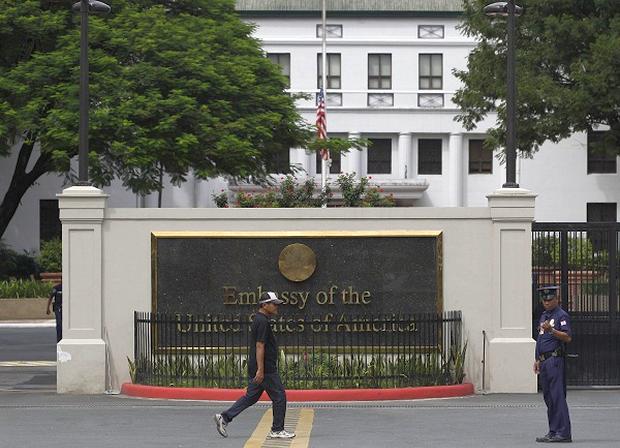MANILA, Philippines — The United States Citizenship and Immigration Services (USCIS) has announced that it will be permanently closing its field office in Manila on July 5.
In an advisory recently posted on its website, the USCIS said its Manila-based office is no longer accepting petitions and applications for family visa, foreign adoptions and citizenship.
“The office began redirecting Forms I-130, Petition for Alien Relative, to the USCIS Lockbox on May 14, 2019,” the USCIS added.
The USCIS added that the U.S. Embassy in Manila will “assume responsibility for certain limited services previously provided by USCIS to individuals residing in the Philippines.”
It added that individuals who were previously assisted by the USCIS Manila Field Office must comply with the following filing instructions:
Form I-130, Petition for Alien Relative
File your petition by mail with the USCIS lockbox facility in Chicago. You can find additional filing information on the Form I-130 web page.
USCIS may authorize the Department of State to accept a petition filed with a U.S. Embassy or consulate in some limited circumstances (PDF, 61 KB).
Form I-360, Petition for Amerasian, Widow(er), or Special Immigrant (for Widow(er) petitions only)
If you are a widow(er) of a U.S. citizen, please see the Form I-360, Petition for Amerasian, Widow(er), or Special Immigrant page for the most current filing instructions.
You may file your Form I-360 at the U.S. Embassy or consulate that has jurisdiction over the area where you live.
Form I-131A, Application for Travel Document (Carrier Documentation)
If you are a lawful permanent resident (LPR) who has lost your LPR card and/or re-entry permit and you need travel documentation to return to the U.S., you can file your Form I-131A with any U.S. embassy consular section or USCIS international field office.
Form I-407, Record of Abandonment of Lawful Permanent Resident Status
Submit your Form I-407 to the nearest USCIS international field office.
In rare circumstances, a U.S. Embassy or U.S. Consulate may allow you to submit a Form I-407 in person if you need immediate proof that you have abandoned your lawful permanent resident status.
Form I-730, Refugee/Asylee Relative Petition
You must file your petition with the Nebraska or Texas Service Center, depending on where the petitioner lives in the United States.
For beneficiary interviews/processing, contact the U.S. embassy consular section in the country where the beneficiary resides.
Form N-400, Application for Naturalization
If you are a member of the U.S. military stationed overseas, please see the Form N-400, Application for Naturalization, page or call 800-375-5283 for the most current filing instructions. USCIS will forward the application to the appropriate international field office for processing. For qualified children of active-duty service members stationed abroad, the proper form to file is the N-600K, Application for Citizenship and Issuance of Certificate Under Section 322.
Filipino World War II Veterans Parole (FWVP) Program
You must file your petition with the USCIS lockbox facility in Chicago. If your petition is accepted, it will be forwarded to a USCIS service center for adjudication. If the service center conditionally approves your application, it will forward it to the Department of State’s (DOS) National Visa Center (NVC). The NVC will transfer your case to the USCIS office or U.S. embassy or consulate abroad where your beneficiary relative will be interviewed.
Last March, the Associated Press reported that the Homeland Security Department has been planning to close its immigration offices outside of the United States, which included the Philippines.
The USCIS operates under the Homeland Security Department.
READ: US immigration agency to close international office in PH, other countries
USCIS spokesperson Jessica Collins said the agency “will work closely with the State Department to avoid any interruptions to services overseas,” the report added.
However, groups like the Amnesty International and Human Rights First criticized the move saying that the closure of the agency’s international offices would lessen services for refugees. (Editor: Mike U. Frialde)


